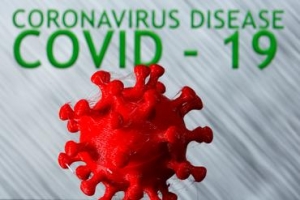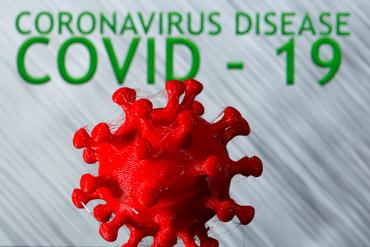Covid-19 complication rates far higher than for flu; open windows, partitions advised for classrooms
COVID-19 complication rates far higher than for flu; open windows, partitions advised for classrooms
(Reuters) – The following is a roundup of some of the latest scientific studies on the novel coronavirus and efforts to find treatments and vaccines for COVID-19, the illness caused by the virus.
Higher complication rate with COVID-19 vs flu
Complication rates are higher with severe COVID-19 than with severe flu, according to a new study. Researchers compared 3,948 adults hospitalized for COVID-19 with 5,453 hospitalized in previous years with influenza. The flu patients had higher rates of underlying medical conditions like heart disease and diabetes. Even so, COVID-19 patients had a more than five times higher rate of death and about double the need for intensive care unit admission and number of days in the hospital. They also had higher rates of 17 different complications including those involving the lungs, blood, heart, blood vessels, nervous system, kidneys and liver. The study, published on Tuesday in the U.S. Centers for Disease Control and Prevention’s Morbidity and Mortality Weekly Report, also found that the risk for COVID-19 complications was higher among Blacks, Hispanics and other non-white patients, even after taking age and underlying medical conditions into consideration. These disparities “provide further evidence that racial and ethnic minority groups are disproportionally affected by COVID-19,” the researchers said. (bit.ly/2Hm4wsf)

FILE PHOTO: A 3D-printed coronavirus model is seen in front of the words coronavirus disease (Covid-19) on display in this illustration taken March 25, 2020. REUTERS/Dado Ruvic
Open windows, glass partitions advised for classrooms
Children would be safer from the new coronavirus if classrooms had glass or plastic partitions fastened to desks, open windows and air conditioning, researchers say. Using computers to map paths of potentially virus-containing aerosols through air, they found that nearly 70% of particles exhaled during speech would exit the room if windows were open. Barriers between desks roughly 8 feet (2.44 m) apart would further reduce transmission of those particles. Up to half of particles generated by coughing or sneezing either land on the floor or are cleared by air conditioning within 15 minutes, researchers reported on Tuesday in Physics of Fluids. “Masks … reduce the number of particles coming from a person and also change their initial velocity. Then you want social distancing and hand sanitizing. Then air conditioning, open windows and glass partitions,” study coauthor Khaled Talaat from the University of New Mexico told Reuters. “No single layer will do the job.” Students at higher risk of COVID-19 complications can be seated where they are exposed to fewer particles, which would depend on the air conditioning layout within the room, the researchers noted. In their model, the back corners were the safest spots. (bit.ly/3kld3Ko)
Jury still out on benefits of convalescent plasma
Pooled data from 19 studies involving more than 36,000 COVID-19 patients has yielded no definitive answer to whether infusions of blood plasma from people who have recovered from the disease is clinically beneficial, an expert panel reported. They searched medical databases to find studies testing the effectiveness of so-called convalescent plasma. “We are uncertain” whether convalescent plasma reduces deaths in hospitalized COVID-19 patients, and it makes “little to no difference” in patients’ symptoms such as need for breathing support within a week after receiving the treatment, researchers said in the report compiled for The Cochrane Library. After more time has elapsed, they said, an effect might become evident. In all cases, the reliability of the studies was “uncertain,” and there was limited information about serious side effects of the treatment. They noted that more than 130 studies of convalescent plasma therapy were ongoing. “We will continue to update this review,” they said. (bit.ly/3oo0Tmy)
Reuters source:



